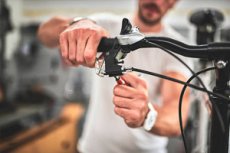New publications
Study shows that exercise slows down our perception of time
Last reviewed: 02.07.2025

All iLive content is medically reviewed or fact checked to ensure as much factual accuracy as possible.
We have strict sourcing guidelines and only link to reputable media sites, academic research institutions and, whenever possible, medically peer reviewed studies. Note that the numbers in parentheses ([1], [2], etc.) are clickable links to these studies.
If you feel that any of our content is inaccurate, out-of-date, or otherwise questionable, please select it and press Ctrl + Enter.

Published in the journal Brain and Behavior, the study shows for the first time that people tend to perceive time as slower when they exercise, compared to periods of rest or after exercise.
Professor Andrew Edwards, head of the School of Psychology and Life Sciences at Canterbury Christ Church University, led the work alongside Dr Stein Menting and Associate Professor Marije Elferink-Gemser from the University of Groningen, and Professor Florentina Hettinga from Northumbria University. The team found that not only does the perception of time slow down during exercise, but that this effect is not enhanced by the presence of competitors.
Participants completed a standardized time perception task before, during, and after exercise, and cycling trials included different conditions: solo rides, rides with a passive companion avatar, and competitive rides against an active opponent avatar.
Professor Edwards said: "Our findings have important implications for healthy exercise choices, levels of enjoyment from exercise and how we use this information to optimise performance."
"The study has a few caveats, though," he added. "It's not yet clear whether the results can be generalized. Although the participants weren't professional cyclists, they were fit, which isn't the case for everyone. The sample of 33 people offers an intriguing first look at how our perception of time can be distorted — and perhaps a clue about how to take exercise to the next level."
"The main areas of work are exploring how we can motivate people to exercise, avoid/mitigate negative associations with the slow passage of time, and perhaps see if we can use this apparent slowing of time to our advantage."
"This research would not have been possible without the significant contributions of my colleagues and the collaboration between our universities," said Professor Edwards.
The study participants completed a series of 4-kilometer cycling tests on a Velotron ergometer with large screens simulating race conditions with and without competitors. The team’s next step will be to extrapolate these results to other groups of people and examine possible impacts on health and performance.
